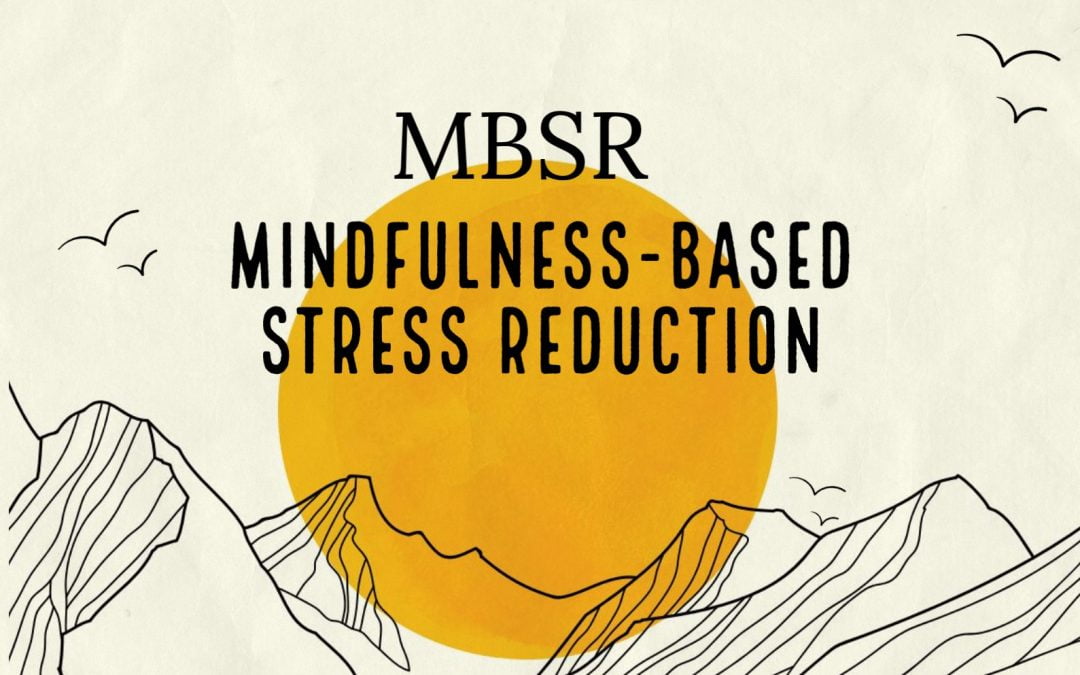
by Seema Bux | Mindful Living
Mindful Traditions: A Blueprint for Family Serenity
In our fast-paced world, families often struggle to find moments of peace and connection. The constant demands of work, school, and extracurricular activities can leave us feeling frazzled and disconnected. But what if there was a way to cultivate calm and connection within the chaos? Enter the concept of mindful traditions.
Mindful traditions are intentional activities that families engage in regularly, with the goal of fostering present-moment awareness, connection, and well-being. These practices go beyond simply spending time together; they involve actively focusing on the experience and creating shared memories that nourish the soul.
Why are Mindful Traditions important?
The benefits of mindful traditions are numerous. They can:
- Reduce stress and anxiety: By focusing on the present moment and letting go of worries, families can find relief from daily pressures.
- Strengthen bonds: Shared experiences create a sense of unity and belonging, fostering deeper connections between family members.
- Improve communication: Mindful traditions often involve open and honest communication, which can strengthen relationships and resolve conflicts.
- Boost emotional intelligence: By practicing mindfulness, families learn to identify and manage their emotions in healthy ways.
- Create lasting memories: Mindful traditions become cherished rituals that families look forward to, providing a foundation for positive memories and traditions.
Advantages of Mindful Traditions:
1. Stress Reduction:
Mindful traditions can help reduce stress and anxiety by promoting a sense of calm and relaxation, allowing family members to better cope with the challenges of daily life.
2. Improved Communication:
Practicing mindfulness as a family can enhance communication and understanding, as it encourages active listening and empathy, leading to more meaningful and supportive interactions.
3. Enhanced Emotional Well-being:
Mindful traditions can help family members become more attuned to their emotions, fostering emotional intelligence, self-awareness, and the ability to manage difficult feelings effectively.
4. Strengthened Relationships:
By engaging in mindful practices together, families can strengthen their bonds and create a deeper sense of connection, fostering a supportive and harmonious family dynamic.
5. Healthier Habits:
Mindful eating and other mindful traditions can promote healthier habits, such as balanced nutrition, better digestion, and improved overall well-being for all family members.
6. Increased Resilience:
Mindfulness can help family members develop resilience and adaptability, enabling them to navigate life’s challenges with greater ease and grace.
7. Enhanced Focus and Attention: Mindful traditions can improve concentration and focus, which can be beneficial for both children and adults in various aspects of their lives, including school, work, and daily tasks.
8. Greater Gratitude and Appreciation:
Engaging in mindful traditions can cultivate a sense of gratitude and appreciation for the present moment and the relationships within the family, leading to a more positive outlook on life.
9. Emotional Regulation:
Mindfulness practices can help family members regulate their emotions more effectively, leading to a more harmonious and peaceful household environment.
10. Overall Well-being:
Mindful traditions contribute to the overall well-being of family members by promoting a healthier lifestyle, reducing stress, and fostering a greater sense of contentment and fulfillment within the family unit.
Examples of Mindful Traditions:
- Mindful meals: Take time to savor each bite without distractions like screens. Discuss the food, express gratitude, and enjoy the company.
- Tech-free evenings: Designate specific times each week to disconnect from technology and reconnect with each other. Play games, read stories, or simply have conversations.
- Nature walks: Immerse yourselves in the sights, sounds, and smells of nature. Notice the changing seasons, observe wildlife, and appreciate the beauty around you.
- Gratitude practice: Share things you’re grateful for, either individually or as a family. This fosters a positive outlook and appreciation for each other.
- Mindful bedtime routine: Wind down with calming activities like reading, taking baths, or practicing gentle stretches. This promotes relaxation and prepares everyone for sleep.
Getting started with Mindful Traditions:
- Involve everyone: Ask family members for their input on what activities they would enjoy.
- Start small: Don’t try to do too much at once. Begin with one or two traditions and gradually add more.
- Be flexible: Adapt traditions to fit your family’s needs and preferences.
- Focus on the present moment: Be fully engaged in the activity and avoid distractions.
- Most importantly, have fun! Mindful traditions should be enjoyable experiences that everyone looks forward to.
By incorporating mindful traditions into your family life, you can create a more peaceful, connected, and joyful home environment. Remember, even small changes can make a big difference. So start today and build a blueprint for family serenity that will last a lifetime.

by Seema Bux | Building Resilience, Coping with Stress
Dive into the world of Mindfulness-Based Stress Reduction (MBSR) with our comprehensive guide. Learn about the origins, principles, and benefits of MBSR, along with practical techniques to reduce stress and cultivate mindfulness.
Mindfulness-Based Stress Reduction (MBSR): A Comprehensive Guide
Navigating the Waves of Stress
In today’s fast-paced world, stress has become a constant companion for many. We juggle work, relationships, family, and a never-ending list of responsibilities, often feeling overwhelmed and depleted. If you’re searching for an effective way to manage stress and cultivate inner peace, Mindfulness-Based Stress Reduction (MBSR) might be the answer you’ve been seeking.
What is MBSR?
Developed by Jon Kabat-Zinn in the 1970s, MBSR is an evidence-based program that combines meditation, yoga, and mindfulness practices to help individuals manage stress, improve emotional well-being, and enhance overall quality of life. It’s not about escaping reality or achieving a permanent state of bliss; instead, it’s about learning to relate to stress in a more skillful and present-moment way.
What is Mindfulness-Based Stress Reduction (MBSR)?
MBSR is an eight-week program that combines mindfulness meditation, body awareness, and yoga to help participants develop a greater awareness of their thoughts, emotions, and physical sensations. The core principles of MBSR are centered on cultivating non-judgmental awareness and acceptance of the present moment, which can lead to a reduction in stress and an improvement in overall well-being.
The program typically involves weekly group sessions led by a trained MBSR instructor, as well as daily home practice assignments. Participants are guided through various mindfulness practices, including sitting meditation, body scan meditation, gentle yoga, and informal mindfulness exercises. Through these practices, individuals learn to observe their thoughts and emotions without becoming entangled in them, ultimately fostering a greater sense of calm and resilience.
The Core Principles of MBSR
The core principles of MBSR are:
- Non-judgmental awareness: Paying attention to the present moment without judgment or criticism.
- Acceptance: Learning to accept our thoughts, feelings, and bodily sensations as they are, without trying to control them.
- Patience: Cultivating patience and understanding with ourselves and our experiences.
- Kindness: Extending kindness and compassion to ourselves and others.
The Structure of an MBSR Program
A typical MBSR program consists of:
- Eight weekly sessions: Each session lasts for 2-3 hours and includes guided meditations, mindfulness exercises, yoga postures, and group discussions.
- Daily home practice: Participants are encouraged to practice mindfulness for 30-45 minutes each day using the techniques learned in the sessions.
- Silent retreat: Between weeks six and seven, participants attend a day-long silent retreat to deepen their practice and experience mindfulness in a quiet and supportive environment.
Who Can Benefit from MBSR?
MBSR has been shown to be effective for individuals with a wide range of conditions, including:
- Chronic stress and anxiety
- Depression
- Pain management
- Fatigue and low energy
- Sleep problems
- Attention and focus difficulties
- Relationship difficulties
The Benefits of MBSR
Numerous studies have demonstrated the effectiveness of MBSR in reducing stress and improving overall health and well-being. Some of the key benefits of MBSR include:
- Stress Reduction: MBSR has been shown to significantly reduce perceived stress levels and enhance coping mechanisms for dealing with life’s challenges.
- Improved Emotional Regulation: Practicing mindfulness can help individuals better regulate their emotions, leading to a greater sense of emotional balance and resilience.
- Enhanced Physical Health: MBSR has been linked to improvements in various physical health markers, including reduced blood pressure, improved immune function, and better pain management.
- Increased Focus and Concentration: Regular mindfulness practice can enhance cognitive functions such as attention and concentration, leading to improved productivity and mental clarity.
Getting Started with MBSR
If you’re interested in exploring MBSR, there are several ways to get started:
- Find an MBSR Program: Look for MBSR programs offered in your local community or online. Many hospitals, wellness centers, and mindfulness organizations offer MBSR courses led by qualified instructors.
- Commit to Daily Practice: MBSR requires a commitment to daily practice, including formal meditation sessions and informal mindfulness exercises. Setting aside time each day for practice is essential for reaping the benefits of the program.
- Cultivate Patience and Compassion: Mindfulness is a skill that develops over time, so it’s important to approach the practice with patience and self-compassion. Be gentle with yourself as you navigate the challenges and rewards of mindfulness practice.
If you’re interested in learning more about MBSR, here are some resources:
Taking the First Step Towards a Calmer You
MBSR is an investment in your well-being. It’s a journey of self-discovery and transformation, offering a powerful toolkit to navigate the waves of stress and cultivate inner peace. If you’re ready to embrace a more mindful and resilient approach to life, consider taking the first step towards a calmer and more fulfilling you.
Remember, mindfulness is a practice, not a destination. Be kind to yourself on your journey, and enjoy the process of learning to be present and accepting of all that arises.
Conclusion
In conclusion, Mindfulness-Based Stress Reduction (MBSR) offers a comprehensive approach to managing stress and enhancing overall well-being. By cultivating mindfulness through meditation, body awareness, and yoga, individuals can develop greater resilience, emotional balance, and a deeper sense of peace in their lives. Whether you’re seeking relief from stress or simply looking to enhance your quality of life, MBSR provides a powerful framework for cultivating a more mindful and fulfilling existence.

by Seema Bux | Mindful Parenting, Mindful Parent-Child Interactions
Discover valuable mindful parenting techniques from a guest contributor. Learn practical tips for creating a peaceful and harmonious home environment for the whole family.
Cultivating Calm: Mindful Parenting Techniques for a Peaceful Home
In the whirlwind of everyday life, raising children can often feel like navigating a chaotic storm. Between tantrums, meltdowns, and the constant barrage of demands, it’s easy to lose sight of the joy and connection that parenthood offers. But amidst the frenzy, there’s an anchor we can all turn to: mindful parenting.
Mindful parenting is about approaching our children with intention and awareness. It’s about acknowledging our own emotions and reactions, understanding our children’s needs, and responding with empathy and compassion. By cultivating mindfulness, we can create a more peaceful and harmonious home for everyone.
The Benefits of Mindful Parenting
The benefits of mindful parenting extend far beyond simply reducing stress. Studies have shown that mindful parenting can:
- Improve parent-child relationships
- Foster better communication and emotional understanding
- Reduce conflict and negative behavior in children
- Increase children’s self-esteem and resilience
- Enhance overall family well-being
Mindful Parenting Techniques to Implement
- Start with Yourself: Before you can be mindful with your child, you need to be mindful of yourself. Take some time each day to practice mindfulness meditation, even if it’s just for a few minutes. Focus on your breath, observe your thoughts and feelings without judgment, and allow yourself to simply be present.
- Be Present with Your Child: Put away your phone, turn off the TV, and make eye contact when your child is talking to you. Give them your full attention and listen with an open heart. Try to see things from their perspective and acknowledge their feelings, even if you don’t agree with them.
- Practice Active Listening: Active listening is more than just hearing what your child is saying. It’s about paying attention to their nonverbal cues, reflecting back what you’ve heard, and asking clarifying questions. This shows your child that you are truly interested in understanding them.
- Respond with Empathy and Compassion: Instead of reacting with anger or frustration, try to see things from your child’s point of view. What might be causing them to act out? What needs are they trying to meet? Once you understand their perspective, you can respond with empathy and compassion.
- Set Clear Boundaries: Children need to know what is expected of them. Set clear and consistent boundaries, but do so in a loving and respectful way. Explain why the boundaries are important and work together with your child to find solutions that work for everyone.
- Take Care of Yourself: It’s impossible to be a mindful parent if you’re feeling drained and depleted. Make sure to take some time for yourself each day to do things that you enjoy and that help you recharge. This might include taking a bath, reading a book, spending time in nature, or simply taking a few deep breaths.
- Be Patient and Kind to Yourself: Mindful parenting is a journey, not a destination. There will be times when you lose your cool or make mistakes. That’s okay! Just pick yourself up, dust yourself off, and try again. The important thing is to keep practicing and learning.
Remember, mindful parenting is not about being perfect. It’s about making a conscious effort to be present, understanding, and compassionate with your child. By incorporating these techniques into your daily life, you can create a more peaceful and harmonious home for yourself and your family.
Additional Resources:
- The Mindful Parent: A Practical Guide to Cultivating Presence and Connection with Your Child by Susan Hopkins
- Peaceful Parent, Happy Kids: A Guide to Bringing More Calm and Harmony to Your Family by Laura Markham
- The Whole-Brain Child: 12 Revolutionary Strategies to Nurture Your Child’s Brain and Thrive in Life by Daniel J. Siegel and Tina Payne Bryson
By incorporating these mindful parenting techniques into your daily routine, you can create a peaceful and nurturing home environment for your family. Remember that mindful parenting is an ongoing practice that requires patience, self-reflection, and a willingness to grow. With dedication and commitment, you can cultivate a harmonious and loving atmosphere that benefits both you and your children for years to come.

by Seema Bux | Mindfulness for Self-Care, Mindfulness and Health
Embrace self-compassion and self-acceptance through mindful practices. Learn how mindfulness can enhance your relationship with yourself, promoting a positive self-image.
Related Keywords: mindfulness for self-compassion, promoting self-acceptance through mindfulness, mindful practices for positive self-image, enhancing self-love with mindfulness, mindfulness for self-worth.
Blossoming from Within: Practicing Mindfulness for Self-Compassion and Self-Acceptance
In the bustling world around us, it’s easy to get caught up in a relentless pursuit of external validation. We strive for achievements, accolades, and the approval of others, often neglecting the most important relationship we have – the one with ourselves.
Cultivating self-compassion and self-acceptance isn’t a fleeting trend; it’s a transformative journey towards inner peace and a foundation for genuine happiness. And the key to unlocking this transformative power lies within the practice of mindfulness.
Mindfulness: The Seed of Self-Awareness
Mindfulness is the practice of paying non-judgmental attention to the present moment. It’s like stepping off the hamster wheel of our thoughts and emotions and taking a conscious breath. This simple act allows us to observe our inner landscape without getting swept away by its currents.
Through mindfulness, we become aware of our self-critical thoughts and negative self-talk. We see how these internal narratives often fuel feelings of inadequacy, shame, and blame. With this awareness comes the opportunity to choose. We can choose to believe these narratives, or we can choose to cultivate a kinder, more compassionate inner voice.
Self-Compassion: The Gentle Rain Nourishing the Seed
Self-compassion is the essence of treating ourselves with the same kindness and understanding we would extend to a loved one facing a challenge. It’s about recognizing our imperfections, acknowledging our struggles, and offering ourselves soothing words and gentle encouragement.
Just as a sunflower thrives under the gentle caress of rain, our self-compassionate acts nourish our souls. When we meet our mistakes with understanding instead of self-blame, we open ourselves up to learning and growth. When we face difficulties with kindness instead of judgment, we foster resilience and emotional strength.
Self-Acceptance: The Blooming Sunbathed Flower
Self-acceptance is the ultimate fruit of self-compassion. It’s the quiet understanding that we are worthy of love and belonging, just as we are. It’s the knowledge that our flaws and imperfections are not roadblocks, but threads woven into the beautiful tapestry of our being.
With self-acceptance, we shed the need for external validation. We find our value within, independent of others’ opinions or achievements. We embrace our unique quirks and talents, celebrating the person we are, not the person we think we should be.
Mindfulness Practices for Blossoming:
- Mindful Breathing: Take a few minutes each day to simply focus on your breath. Observe the rise and fall of your chest, without judgment or expectation. This simple practice anchors you in the present moment and cultivates inner peace.
- Body Scan Meditation: Lie down in a comfortable position and bring your attention to different parts of your body. Notice any sensations, aches, or tensions without judgment. This practice fosters a sense of connection with your physical self and promotes relaxation.
- Loving-kindness Meditation: Repeat phrases of kindness and compassion towards yourself, such as “May I be happy,” “May I be healthy,” and “May I be free from suffering.” This practice cultivates self-love and acceptance.
- Journaling: Write down your thoughts and feelings without censorship. This allows you to process difficult emotions and gain insights into your self-talk and inner critic.
Remember, cultivating self-compassion and self-acceptance is a journey, not a destination. There will be stumbles and setbacks, moments of self-doubt and negativity. But with each mindful practice, you nurture the seeds of self-love within you, allowing them to blossom into a radiant sunflower, strong, resilient, and basking in the warm sun of self-acceptance.
May your journey be filled with kindness, understanding, and the unwavering belief in the beauty that blooms within you.

by Seema Bux | Mindful Living
Explore mindful strategies to maintain the balance between family life and personal well-being. Learn how to integrate mindfulness into daily routines for a healthier and happier you.
Mindful Strategies for Balancing Family and Personal Well-being: Embracing Harmony in Everyday Life
In the grand juggling act of life, balancing family and personal well-being can feel like a constant challenge. The demands of parenthood, careers, and personal needs often leave us feeling stretched thin, yearning for that elusive sense of harmony. But what if achieving this balance wasn’t about squeezing more hours into the day, but rather cultivating a mindful approach to our time and experiences?
Mindfulness, the practice of paying focused attention to the present moment without judgment, can be a powerful tool in navigating the intricate dance between family and personal well-being. Here are some mindful strategies to embrace:
1. Setting Intentions:
Before the day’s whirlwind begins, take a few quiet moments to set intentions for yourself and your family. What qualities do you want to bring to your interactions? What small joys do you want to prioritize? Grounding yourself in these intentions, even for a few minutes, fosters a sense of purpose and mindful direction.
2. Cultivating Presence:
In the rush of family life, it’s easy to become a master of multi-tasking, dividing our attention among a million tasks. Instead, choose moments to be fully present. During bath time, put away your phone and truly connect with your child’s giggles. While reading bedtime stories, savor the warmth of their small hand in yours. These seemingly small acts of presence nourish both you and your family.
3. Embracing Boundaries:
Clear boundaries between work and family life are crucial for maintaining sanity. Set designated work hours and stick to them, resisting the urge to check emails after bedtime. Communicate these boundaries to your family and colleagues – your well-being deserves respect. When you’re present for your family, be fully present, free from the anxieties of work.
4. Recognizing Interdependence:
While juggling responsibilities, it’s easy to fall into the trap of “me” versus “them” thinking. Remember, your well-being is intertwined with your family’s. When you prioritize self-care practices like exercise, meditation, or hobbies, you replenish your energy, making you a more patient, loving, and present parent or partner.
5. Celebrating Small Wins:
Don’t wait for grand gestures to acknowledge your efforts. Celebrate the small victories: the shared laughter at dinner, the successful bedtime routine, the stolen moment of mindfulness amidst the chaos. Recognizing these tiny triumphs fosters a sense of joy and accomplishment, even on the most challenging days.
6. Embracing Imperfection:
Striving for a picture-perfect balance is a recipe for stress. Let go of the “shoulds” and accept that some days will be messy, chaotic, and far from ideal. Embrace the imperfections as part of the tapestry of life, learning and growing from each experience.
7. Prioritizing Communication:
Open and honest communication is the cornerstone of healthy relationships. Talk to your family about your needs and challenges, and actively listen to theirs. Seek solutions together, acknowledging that everyone’s well-being matters. This shared responsibility fosters a sense of support and understanding.
Balancing family and personal well-being is an ongoing journey, not a destination. By incorporating these mindful strategies, you can cultivate a sense of harmony and peace in the midst of the daily whirlwind. Remember, you are not alone in this dance – embrace the imperfections, celebrate the small wins, and most importantly, be present for the beautiful chaos that is family life.





